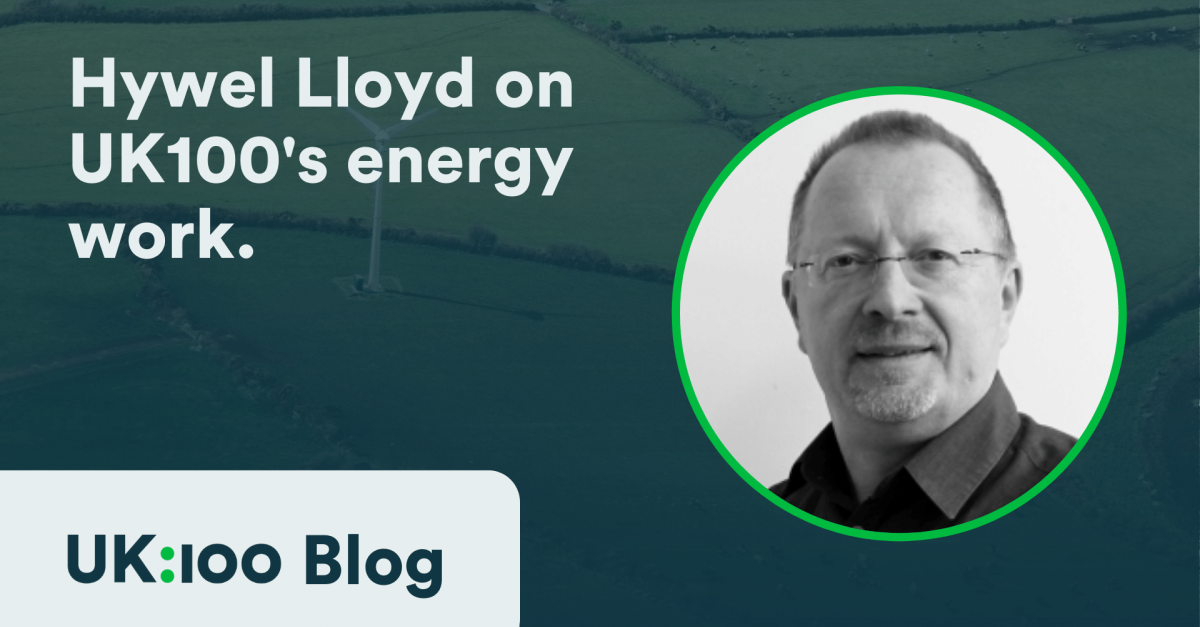
UK100 has been in conversation with the six electricity Distribution Network Operators (DNO) over the past few months to ensure that local energy planning and the role that local authorities have to play in the future of our energy system is considered in their plans for the future of the electricity networks.
In addition to those directly submitted by a number of authorities we recently delivered our responses to Ofgem’s call for evidence on the DNOs draft business plans. Each includes insights specific to each planned approach and their unique issues, yet there are also some common challenges which need to be addressed in every area, which we also shared across our submissions - outlined below.
We will continue our engagement with Ofgem through the spring, when they will be holding public Open Hearings for each DNO and we will follow the process over the summer towards publication of final plans at the end of the year. We will also advocate for the consideration of the next phase of business planning to begin thinking about local Net Zero delivery as early as possible.
Making a success of strategic partnership working between DNOs and local government
The UK100 network is conscious that the challenges, and many opportunities, of Net Zero will be best met with local partnership.
Local - because many of the solutions will depend on the lie of the land, the state of the physical environment and opportunities to connect local resources to meet local demands; as also highlighted by the Committee on Climate Change, and the National Audit Office. Partnership - because no one organisation or group has oversight of all the potential of an area, nor all the levers that will give us the best opportunity to successfully, and fairly, meet Net Zero before 2050. Given the importance of renewable energy, and particularly renewable electricity, to the transition to Net Zero, these 2023/28 plans and subsequent delivery of them are fundamental building blocks.
In addition, the direction of travel to a decarbonised energy system is inherently decentralised, given the geographical spread of renewable energy and the ability of almost every place and physical surface to host a renewable energy device, be that a house or office for solar PV, or a piece of land for a wind or solar farm – unlike the limited and locational supply of fossil fuels. This in turn makes it essential that energy systems are planned with due regard to their location.
Planning with due regard to location reinforces the strategic role local government will play in the evolution of the energy system, both in the analysis and integration that should arise from each local area energy plan (LAEP), and in the ongoing oversight of the development of the system in the work of the Distribution System Operator. LAEPs will need to work across administrative borders and be developed in such a way that they are capable of interacting between local authority and DNO boundaries. They need to be developed at a scale that is practicable and it must be ensured that they are linked and designed to work together.
UK100 would also highlight that meeting Net Zero as a nation means many sectors, communities and organisations will need to have met their Net Zero well before 2049, and be facilitating, sharing and comparing different solutions so we can collectively be more effective in decarbonising. UK100’s Powershift report lays out in detail what different tiers of local government can have power, control and influence over, which is a useful consideration in this space. We know that local authorities vary in know-how, expertise and enthusiasm, but these gaps can be closed with constructive and supportive engagement from DNOs, that recognises the value they bring in terms of knowledge of their communities and the place-based solutions that will be most effective in the short and long term.
Based on the recent work of UK100 in examining DNO draft plans and DNO engagement with local authorities in developing them, we would expect the DNOs to seek to enhance their plans, taking into account the best examples of joint strategic work between DNOs and local authorities, for example:
-
Moving to an explicit alignment between these plans for the network and those development plans and frameworks held and overseen by relevant local authorities.
-
Developing a strategic forum to work with us and our fellow local authorities, bringing democratic accountability and insight to the delivery of a decarbonised energy system.
-
Such a strategic forum to include shared engagement in, and oversight of the development of LAEPs.
-
LAEPs will also help ensure the most appropriate strategic solutions are deployed, e.g. heat networks.
-
These LAEPs should inform the development of Distribution Future Energy Scenarios.
-
Helping ensure business plans for ED3 are fully informed by local challenges, opportunity and ambition.
-
-
Such a strategic forum could become part of the governance of the DSO, as that develops during the ED2 period.
-
The forum could also support the development of skills and capabilities; all of which in turn will improve the operational relationships.
We would note that such a strategic forum is above and beyond the operational engagement that is implied by the deployment of engagement officers to engage with local authorities; successful decarbonisation needs operational engagement AND strategic alignment - both of which should be Business As Usual.
Such a strategic forum should also apply the lessons of any review into the impact of Storm Arwen carried out with the affected DNOs.
Ofgem should ensure that there is a robust framework for LAEPs, that the importance of the role of local authorities is recognised and not least that local authorities have a formal role in the emerging structures of the DSO to ensure the necessary and essential location specific intelligence is always part of how the DSO works to develop the energy system over time. This should in turn lead to mechanisms through which local authorities can inform any future decisions on reopeners that may occur during the ED2 price control period.


